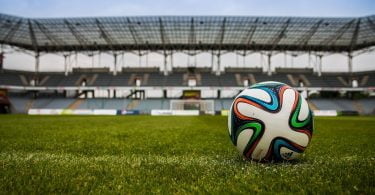Barcelona and Spain have ruled the world since 2008 and done it with a unique patient, passing style.
Barcelona and Spain have ruled the world since 2008 and done it with a unique patient, passing style. However, recently this ideology has taken a beating compared to a more direct, high pace style culminating in Holland’s 5-1 demolition of World and European champions Spain yesterday.
This has led many to claim the tiki-taka style is dead in the water and the future belongs to men more like leopards than footballers like Gareth Bale, Arjen Robben and Cristiano Ronaldo. The Guardiola and Del Bosque philosophy certainly isn’t outdated, it just needs to evolve.
Slightly stale
Since 2008, 4 players have played almost every game both Barcelona and Spain have featured in. Gerard Pique, Sergio Busquets, Xavi Hernandez and Andres Iniesta have all made their mark in the greatest competitions in the world. After the dizzy heights of Barcelona’s 2011 La Liga and Champions League double and Spain’s 2012 European Championship, they may have lost the edge that made them so special.
Who can blame them? You’ve won everything there is to win and you will forever be in the history books, surely you are entitled to celebrate?
Certainly, but football never stops, never allows stars to rest on what they have already achieved.
To play in the style Barcelona and Spain have demanded you firstly require 11 supremely talented footballers, including a goalkeeper who wouldn’t look out of place at centre midfield. Both sides have that but you also need 11 players who fully buy into the ideology of the manager and are prepared to press high up the pitch as a complete unit.
Barcelona’s unique problems
At the height of Barcelona’s powers, Messi was flanked by David Villa and Pedro with Iniesta, Xavi and Busquets behind. They pressed as a unit of six athletic men who gave teams no option but to launch the ball up field where Puyol, Pique and Valdes could navigate the ball around a lone striker and return it to their attacking threats as quickly as possible.
Messi no longer has players in the mould of Villa and Pedro either side of him weekly. The now departed Cesc Fabregas or Andres Iniesta have both been forced to play in one of these advanced position while a runner like Pedro or Alexis Sanchez remains on the other wing. This instantly means there is another option for defences to get out which the aging legs of Xavi and Puyol have struggled to deal with.
The revamp has begun at Barcelona with Marc Andre ter Stegen an almost like for like replacement for Victor Valdes and Ivan Rakitic replacing Fabregas who always seemed to confuse the well-oiled machine rather than improve its efficiency.
Xavi, Alonso and Casillas: time to step aside
Three legendary figures in Spain, Xavi, Xabi Alonso and Iker Casillas must step aside or be axed by Vicente Del Bosque. Xavi and Alonso have been two of the best passers football has ever seen and until recently they accompanied this with incredible fitness and agility, penning teams into their own half, forcing them to surrender the ball. This edge had to be lost eventually and players like Koke have shown they are more than capable of taking over the mantle.
Casillas is a slightly different situation. Never as comfortable on the ball as Valdes, Casillas has maintained his place ahead of the Barcelona goalkeeper through his captaincy status and the regard he is held in by the Spanish public. Jose Mourinho saw that Diego Lopez was a more consistent, reliable ‘keeper for his Real side and his decision to drop ‘Saint Iker’ created a tense relationship with fans and board members, effectively leading to his sacking.
David de Gea is young and excellent with his feet, meaning he could be Spain’s number one for ten years if given the opportunity.
If Spain wish to return to the top and plan to do so in a way similar to how they originally reached the top then tough decisions have to be made.
These two sides have created history and provided joy for millions but there comes a time when you have to move on. Barcelona and Spain have both reached that point.
What do you think? Have your say in the comments section below.








